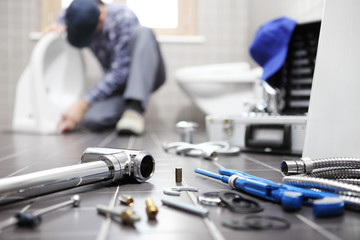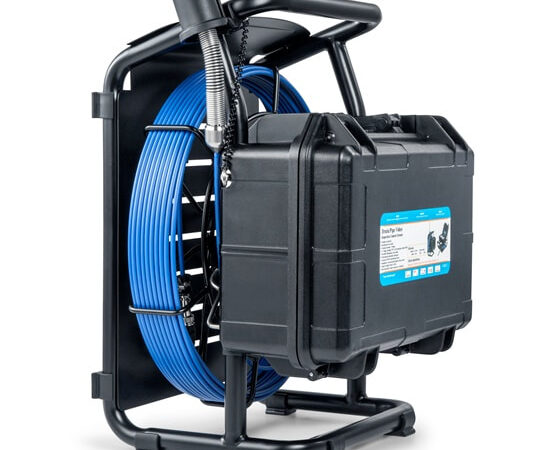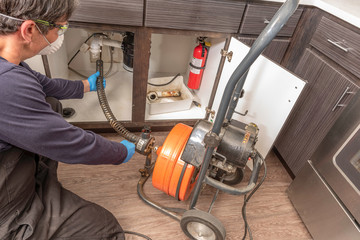Things To Look For In A Plumber
If you are looking for a plumber, you’ve come to the right place. Plumbing is a professional trade that specializes in drainage and potable water systems. Plumbers also work on water lines and sewer systems. They have the necessary tools and training to do this work. Here are some things to look for in a plumber. Read on to learn more about the job and why you should hire a professional plumber. Also, don’t forget to be honest about your plumbing problems so you can receive fair pricing.

In most jurisdictions, a plumber must have a license and have between two and five years of experience. In addition, plumbers must pass a state licensing exam. In addition to training and experience, plumbers also need to possess soft skills. These skills are learned through life experiences. Soft skills include listening, troubleshooting, and assessing a customer’s needs. It’s important to hire a plumber with these skills to ensure the safety of the homeowner and their property.
One of the most rewarding aspects of a plumber’s job is the opportunity to make a living. Plumbers help keep the supply of water flowing through pipes and ensure it reaches appliances. Plumbing jobs require strong problem-solving skills, excellent customer service, and a certain level of physical fitness. In general, the job outlook is good, with an expected 15 percent increase in jobs between 2016 and 2026, although many factors influence employment. When the economy is strong, plumbers are in great demand.
Becoming a plumber is a rewarding and versatile career. Licensed plumbers tend to stay in the trade for life. Many continue working part-time even after reaching retirement age. Apprenticeships and training programs provide excellent opportunities for aspiring plumbers. Some accredited online schools offer courses in this profession. This allows you to work in many places across the country, and is highly sought-after. Despite the demand for plumbers, the pay is significantly above average.
To hire a plumber, do your homework first. Ask for referrals from trusted friends. Always price shop. Do your research and collect information about your preferred plumber. This way, you can avoid surprises later. And, of course, you’ll save money. When the time comes, call a plumber who offers warranties and liability insurance. They’ll also provide you with an estimate before starting the work. It’s important to hire a professional plumber with many years of experience.
The word “plumber” dates back to ancient times. In ancient times, water supply systems were used to lead. Lead was used to make pipes, conduits, and baths. Lead is a common element in water systems, and in medieval times, people working with it were often called plumbers. There are many different types of plumbers. Listed below are a few of the most common jobs.
As a plumber, you will install water and sewage systems in homes and businesses. You can also fix a clogged drain, or replace a corroded pipe on your bathroom floor. The scope of plumbing jobs is vast, ranging from large sewage systems to small plumbing jobs. There are many types of plumber jobs available, and some of the best-paying ones require specialized skills. If you’re looking for a job with less competition, consider becoming an apprentice under an experienced plumber.
The most common route to becoming a plumber is through an apprenticeship program sponsored by a contractor, company, or local union. These programs are four to five years long and involve both educational hours and on-the-job training. Educational hours are completed at trade or technical schools, and hands-on training occurs while you’re working in an actual plumbing facility. Once you graduate from an apprenticeship program, you will be considered a journey worker. Ultimately, you’ll need a license to work as a plumber in most states.
The price of hiring a plumber depends on the complexity of the plumbing job, and the time of the day you need the plumber. There are service fees, haul-away fees, and trip fees. Some plumbing companies may add extra charges, such as haul-away fees, to cover these costs. The service fee for a plumber typically runs around $150. This covers materials and travel time and may include a diagnostic fee for a difficult leak. In addition, it is important to consider what materials you want to use for your plumbing.
A plumber’s hourly rate varies widely. Some plumbers charge up to $200 per hour. A journeyperson plumber, on the other hand, charges $16 to $34 an hour. A journeyperson plumber is licensed to work on the most common household plumbing issues. However, if you’re facing a more complicated plumbing issue, you should hire a master plumber. A master plumber is fully trained and licensed. While most plumbers charge the same for a routine job, some require a master plumber.




